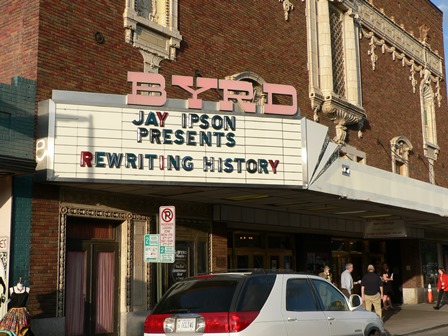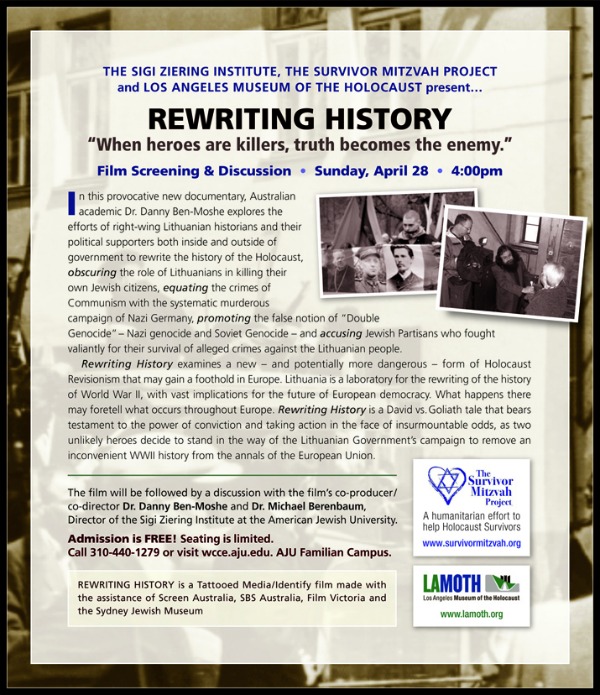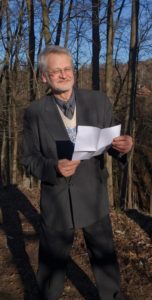Some highly respected international scholars have been persuaded to participate in a film which some leaders of Holocaust Survivor organizations around the world fear will be a cover-up for the main ‘accomplishment’ of the LAF (Lithuanian Activist Front) and related fascist groups, and their local supporters. These groups, often identified by white armbands and known as white armbanders, had started to carry out murder, molestation and pillage of Jewish neighbors in dozens of locations even before the arrival of German Nazi forces in late June 1941. Many of the same killers went on to serve voluntarily as shooters in the annihilation of most of Lithuanian Jewry in the second half of 1941.
Film
Has LRG Media (UK) been Compromised?
The prestigious British-based LRG Media, a multimedia company with an impressive record of achievements and awards, has apparently been targeted by certain elements in Lithuanian government circles as the latest ‘Naive Useful Foreign Entity’ to help make respectable internationally the state-sponsored campaigns for Double Genocide, Holocaust Obfuscation, and selective toleration of current antisemitism.
Masked Men Throw Smoke Bombs in Small Vilnius Theater, Disrupt Film on Anti-Fascists
On Monday evening 2 May (Yom Hashoah), at about 7 PM, five or six masked perpetrators forced their way into a small theater in Vilnius showing a film about the formation of the anti-fascist movement in France and hurled military-type smoke bombs at the screen. Viewers, including a child, fled in panic and unable to breathe. Some witnesses claimed they saw members of the Lithuanian military participating.
Eyewitness Account of the Screening of ‘Uprising of the Enslaved’
by [NAME WITHHELD ON REQUEST]
The premiere of the Lithuanian-language film Pavergtųjų sukilimas, or Uprising of the Enslaved, was held in Vilnius in the early evening of 22 June 2011, timed to coincide with the anniversary of what is commonly called the “June Uprising”.
Devising a Legend about an ‘Uprising of the Enslaved’ — A Documentary Film financed by Lithuania’s Parliament and its Genocide Research Center, on the 70th Anniversary of the Outbreak of the Lithuanian Holocaust
O P I N I O N
by Milan Chersonski
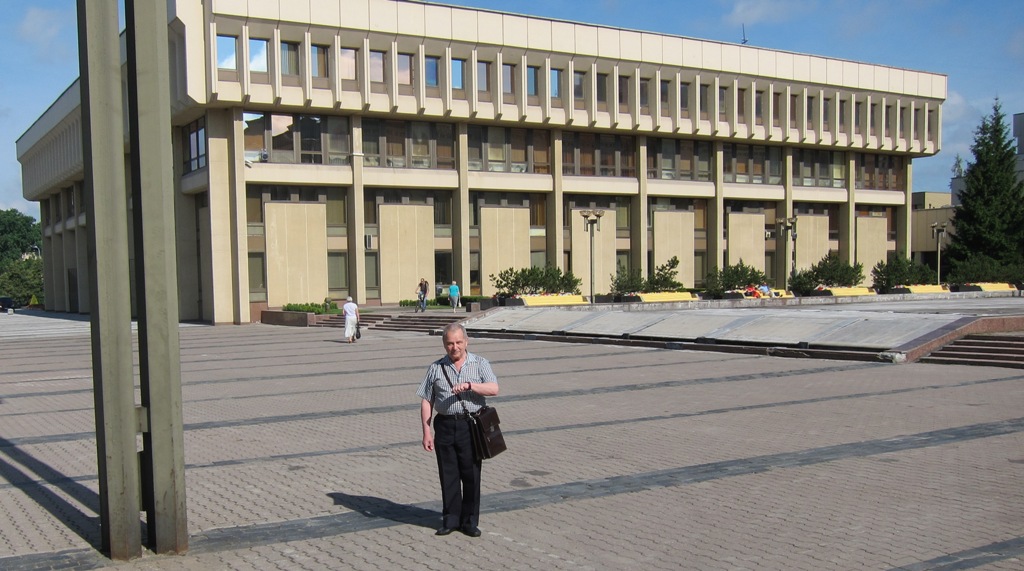
Milan Chersonski in front of the Lithuanian Parliament (Seimas)
СОЧИНЕНИЕ ЛЕГЕНДЫ О ВОССТАНИИ ПОРАБОЩЕННЫХ
28 сентября 2010 года Сейм Литвы объявил, что 2011 год будет называться Годом памяти о сражениях за свободу и великих утрат. Это загадочное название какого-то юбилея прозвучало ровно неделю спустя после объявления того же 2011 года Годом памяти жертв геноцида евреев Литвы.
A ‘Documentary Film’ Tries to Establish the Legend of the ‘Uprising of the Enslaved’
O P I N I O N
by Milan Chersonski

Milan Chersonski at the Lithuanian Parliament. From 1979 to 1999 Chersonski directed the Yiddish Amateur Theater in Vilnius, Lithuania. He worked in various capacities at the quadrilingual (English-Lithuanian-Russian-Yiddish) newspaper Jerusalem of Lithuania, publication of The Jewish Community of Lithuania, from its founding in 1989 until the paper was closed in 2011. He was its editor-in-chief from 1999 to 2011. He is now a senior analyst at DefendingHistory.com and contributes to various publications.
On September 28th 2010, the Parliament of Lithuania announced that 2011 would be the Year of Commemoration of Battles for Freedom and Great Losses. This mysterious name of some sort of anniversary appeared exactly a week after the same year, 2011, was declared the Year of Commemorating the Genocide of Lithuanian Jews. The Jewish Community of Lithuania reacted without delay to the ‘dual track’, apartheidized commemorations.
Now which “battles for freedom” are they talking about in the resolution? What sort of great losses? The resolution does not say specifically. Yes, Lithuanians valiantly rebelled for freedom in 1794, and in 1831, as well as in 1863, and then there were serious demonstrations on behalf of freedom in 1904-1905, and then there were the battles from 1918 to 1920 for the independence and borders of the newly founded state.
But it is impossible to understand exactly which events and which dates they now had in mind from the text of Lithuanian parliamentary resolution no. XI-1038 of September 28th 2010. And this is probably no accident, as shown by the subsequent actions of the Lithuanian government and leading organizations here.
‘Day and Night’ is an Epoch-Making Play for Modern Lithuania
O P I N I O N / R E V I E W
by Birutė Ušinskaitė
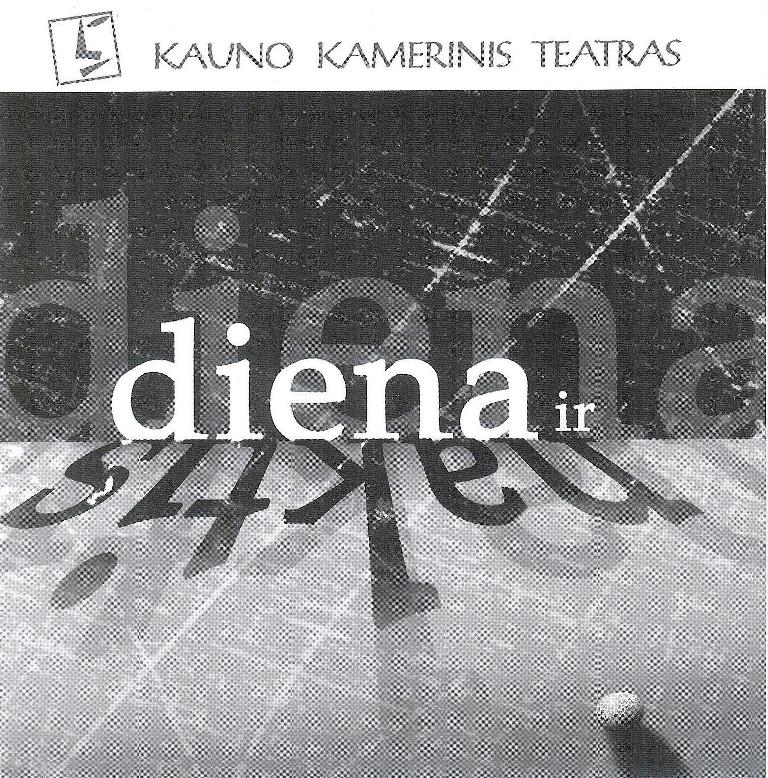
Cover of playbill
It was just another rainy and not overly cold evening in early December of the year 2011, but the play I was privileged to see at the Kaunas Chamber Theatre, Day and Night, proved to me, a proud Vilnius native and resident, that not all that is bold and brilliant originates in our capital.
For the first time in modern Lithuanian history, in my experience at any rate, a Lithuanian play on the Holocaust did not try to deflect attention ― or responsibility ― to the Germans or to some pseudo-objective forces of society, or to stick to some “kosher” theme like the dilemmas of Gens and the Judenrat in the Vilna Ghetto in order to avoid talking about what is frankly the main point for our country: the voluntary participation of many of our countrymen in the mass murder of the Jewish citizens of our own country, in some cases before the Nazis even arrived.
Light and Darkness Do Not Mix
O P I N I O N
by Geoff Vasil
Saulius Beržinis is an astounding filmmaker. Somehow the Lithuanian director of documentaries has a knack for drawing out frank admissions on camera, even from collaborators who recount how they murdered Jews.
Beržinis has a great reputation in Holocaust studies around the world, but, as the saying goes, a prophet is often unrecognized in his native land, and the cloak of invisibility around the Lithuanian Holocaust cast by the activists in the Double Genocide industry has marginalized the documentary maker at home, where his “The Happy Faces of the Murderers” is basically unknown.
Explosive Reactions to Saulius Berzhinis’s New Film on the Holocaust in Jurbarkas (Yúrberik)
O P I N I O N / F I L M R E V I E W
by Milan Chersonski
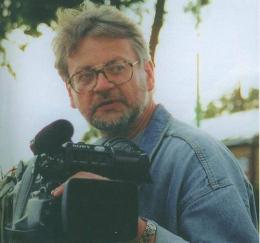
Vilnius film director Saulius Berzhinis
There has recently been extensive Lithuanian media coverage of a conflict between the authorities of the city Jurbarkas, Lithuania, and the film company Filmų Kopa, founded by film director Saulius Berzhinis (Beržinis) and managed by Ona Biveinienė.
To mark the seventieth anniversary of the beginning of World War II in Lithuania and the beginning of the total annihilation of its Jews, the Jurbarkas regional museum commissioned a documentary about Jews who lived in the town before World War II, paid for by the Ministry of Culture and the budget of the municipality. Filmų Kopa was awarded the commission and made a documentary called “When Yiddish was Heard in Jurbarkas.” The town’s name in Yiddish is Yúrberik or Yúrburg.
As the film has become a matter of sharp conflict, it is worthwhile in the first instance to take a good look at the actual product that Filmų Kopa delivered to the residents of Jurbarkas.
Deception Exposed: The New Documentary Film “Rewriting History”
F I L M
by Graeme Blundell
NOTE: This review appeared in today’s Australian. The original publication is available here and here.
This is one of those documentaries that is so compelling and so confronting it leaves you stunned, a little breathless.
It’s both a kind of contemporary international political thriller and a rigorously researched investigation into a piece of the past and the way it is remembered in the present. Or not remembered, when the truth of that past becomes politically problematic.
The film follows two slightly eccentric professors, the Australian Danny Ben-Moshe from the Centre for Citizenship and Globalisation at Deakin University and Dovid Katz who taught Yiddish at Vilnius University, the oldest in Lithuania, as they confront the Lithuanian government.
US Documentary Film Maker Releases Correspondence with Yad Vashem on Alliance with Lithuanian “Red-Brown Commission”
The American documentary film maker Richard Bloom, who has produced a number of documentaries on the Holocaust, today released for publication his recent correspondence with Yad Vashem. He said his decision was taken after he failed to receive substantive replies to his recent queries about Yad Vashem rejoining the Lithuanian government’s “red-brown commission.”
Rachel Kostanian, Head of Vilnius’s ‘Green House’ and Champion of Holocaust Truth, Featured in New Documentary
Rachel Kostanian, the famed one-woman bastion holding off the state-sponsored hordes of ultranationalist Holocaust revisionism, continues to lead The Green House, as the Holocaust section of Lithuania’s state Jewish museum is known. It is a small wooden structure atop a hall hidden by a long driveway, invisible from the street, in contrast to the other sections of the Jewish museum. In contrast to all the others, The Green House’s exhibits and texts narrate the simple truth about June 1941 and the role of the “white armbander” Nazi militias in initiating the genocide of Lithuanian Jewry, as well as the later and massive collaboration with and participation in the killing throughout the genocide of Lithuanian Jewry. Like others who stand up, and especially those in prestigious academic or cultural positions in Lithuania, she is being subjected to extensive official harassment, degradation, demotion and a campaign of psychological warfare including defamation (see for example, Esther Goldberg Gilbert’s first and second articles in 2010).
It is against this backdrop that Ms. Kostanian’s prominent inclusion, at four separate points, in Professor Danny Ben-Moshe’s new documentary, Rewriting History, acquires special significance here in Vilnius.
The film is available online. Rachel Kostanian’s four appearances are at the following time c odes:
11:16 to 12:12
17:47 to 19:47
21:10 to 21:34
31:20 to 33:16
“Rewriting History” on the Road in the USA
Rewriting History: New Documentary Film on the Shocking New Holocaust Revisionism in Eastern Europe
REVIEWS OF REWRITING HISTORY
Film’s website ◊ Sign the Seventy Years Declaration ◊ Donate HERE
◊
April 28th 2013 in LA
Continue reading
Reviews and Coverage of the Australian Documentary Film “Rewriting History”
[date of last update]
www.Rewriting-History.org
FACEBOOK PAGE
US SCREENING TOUR 2013
The film features exclusive commentary by historians Efraim Zuroff and Konrad Kwiet; Survivors Fania Yocheles Brantsovsky and Dobke Yonis; Vilnius activists: former Green House Holocaust museum director Rachel Kostanian and former Vilnius University Yiddish professor Dovid Katz; European parliamentarians Denis MacShane, John Mann, Martin Schulz, Gert Weisskirchen; Sensational responses from Lithuanian government officials including red-brown commission boss Ronaldas Račinskas and the prosecutor, Rimvydas Valentukevičius, who “investigates” Holocaust survivors (none of whom were ever charged with anything or received a public apology); MEP Vytautas Landsbergis later withheld permission for inclusion of his own taped interview…
The Neo-Nazis Hate the Feminists, Too
Protesters against ultranationalist groups must face police and prosecutors
O P I N I O N
by Lina Žigelytė
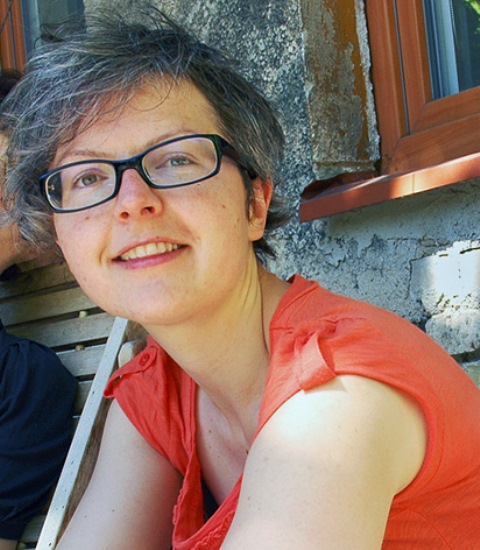
Lina Žigelytė
A spectre is haunting Lithuania — the spectre of feminism. All the powers of far-right Lithuania (this includes also far-rightists who know how to present themselves as center-right) have entered into a holy alliance to exorcise this spectre: puritans and watchful police officers, bloggers and self-described patriots.
The word “feminist” has become the most recent label to define the enemy of the state. This is because grassroots strategies — theatrical protests, DIY media, art projects, and solidarity with social minorities — are rapidly changing the landscape of local feminism. What is important, these strategies also invigorate the broader fight against neo-Nazism.
Swedish Film Director Speaks Out on the Lithuanian Holocaust, Sort of, a Little Bit
O P I N I O N
by Geoff Vasil
Jonas Öhman is a Swede who has been coming to Lithuania and living here on and off from almost the beginning of modern independence in the 1990-1991 period. During that time he has produced a number of films, only one of which appears to his credit on the internet film database imdb.com, but all of which deal more or less with a mythologized version of the history of Lithuanian anti-Soviet partisans.
Film Maker Attempts to Gift New Film on Riga Ghetto to Latvian Embassy in German
The following is the English translation, by Monica Lowenberg, of a letter sent today by German film maker Jürgen Hobrecht to the Latvian ambassador in Berlin.
Dear Mrs. Japina,
Hungary Rewrites History
O P I N I O N
by Danny Ben-Moshe
This comment, republished here with the author’s permission, first appeared in the Jerusalem Post on 22 February 2014.
My 2012 documentary film Rewriting History tracked the emergence of “Double Genocide” and the rewriting of the history of the Holocaust in Lithuania.
The film warned that what was occurring in Lithuania was a harbinger of something that could become more widespread and ultimately mainstream in Europe, particularly in Eastern Europe. Unfortunately recent events in Hungary bear this out.
Russian Translation of Danny Ben-Moshe’s Feb. 2014 JP Article, “Hungary Rewrites History”
This authorized translation by Milan Chersonski is based on the text of the original English article by Danny Ben-Moshe, “Hungary Rewrites History” that appeared in the Jerusalem Post on 22 February 2014.
Is the Vilnius Police Criminal Division Harassing a Veteran Holocaust Researcher?
VILNIUS—Defending History confirmed today that renowned documentary film maker and Holocaust researcher Saulius Beržinis, founding director of the Independent Holocaust Archive of Lithuania (IHAL), has been the latest recipient of a letter from police on account of his work documenting the alleged Nazi collaboration of various Lithuanian “1941 freedom fighters” who allegedly collaborated with the Nazi regime and in the murder of their civilian Jewish-citizen neighbors in the days, weeks and months following 22 June 1941. The letter demands he turn over a “list” of criminals which it was never his, nor the Archives’ intention, to produce or comment upon. Over the years, the Holocaust specialist has won the confidence of groups worldwide for his willingness to seek out and tell the unvarnished truth, among them the Wiesenthal Center’s Israel office.
The March 19th letter to IHAL’s director, letterheaded “Vilnius District Senior Police Commission, Vilnius City First Police Commission, Police Criminal Division” is reproduced below (followed by translation into English).
Saulius Beržinis has been collecting testimonies on the Holocaust for a quarter of a century. He is known internationally for his singular achievement of interviewing on camera actual admitted killers (some are in the film Lovely Faces of the Killers, 2002), and his extensive documentation work with survivors and witnesses. He has partnered over the years with BBC, The United States Holocaust Museum, the Vilna Gaon Jewish State Museum of Lithuania, Yad Vashem, and other international bodies, in addition to dozens of Holocaust survivors. His Holocaust documentaries include Farewell Jerusalem of Lithuania (1994), Yudel’s Unwritten Diary (2004), The Road to Treblinka (1997). Most recently, his film on the Holocaust in Jurbarkas (Yúrberik) became controversial for daring to name the killers of the town’s Jewish citizens in 1941 (see reviews by Milan Chersonski and Geoff Vasil).
